 The Future We See
The Future We See
It is the year 2054. Zinhle Adegoke walks into the Pan-African Institute of Transformative Learning and Insights (PATLI), her holographic learning interface displaying a complex interaction between ancient Yoruba mathematical systems and quantum computational modelling. Around her, students
collaborate in a dozen indigenous languages, their research projects seamlessly weaving traditional wisdom into cutting-edge innovation. The stories her grandmother told of colonial educational suppression feel like echoes from a distant past. Yet, this moment of intellectual renaissance was not gifted, it was claimed – the result of the deliberate struggle of generations dedicated to psychological liberation.
The Chains We Break
Half a century earlier, Africa’s educational landscape told a different story. Colonial systems cast long shadows, with:
- Western knowledge positioned as superior
- Learning models disconnected from local realities
- Curricula designed to perpetuate external narratives
- Indigenous wisdom dismissed as primitive
African languages pushed to the margins, and with them, unique indigenous thought patterns.
The message was clear: legitimate knowledge originates from Western intellectual traditions.
Africa was taught to see herself through borrowed lenses, to understand the world using frameworks that fundamentally negated her own existential realities.
A New Beginning
Today, Africa stands at a pivotal point, where traditional educational models need to be radically reimagined if she must dismantle the structural limitations of educational colonialism and reclaim intellectual sovereignty. This isn’t just about improving access or enhancing infrastructure. It is about fundamentally reconstructing the soul of education in Africa – a deliberate process of psychological liberation. This means:
1. Celebrating African Knowledge System
− Moving beyond rote learning to teaching methods that celebrate indigenous ways of sense-making
− Recognizing indigenous knowledge systems as nuanced ways of understanding the world
− Creating educational spaces that affirm cultural dignity
2. Redefining Education as an. Economic Empowerment Tool
− Embedding entrepreneurship into core curricula
− Developing students as creators of economic ecosystems, not just employees
− Building dynamic university-industry partnerships (UIPs) and programs with curricula responsive to emerging economic needs
3. Adopting a Holistic Approach to Learning
− Valuing character and community responsibility as highly as technical competencies
− Integrating emotional intelligence, conflict resolutions skills, and a deep commitment to collective well-being into educational frameworks
− Nurturing ethical leadership
4. Elevating Multilingual and Multicultural Education
− Recognizing local languages not just as communication tools, but as profound repositories of cultural wisdom.
− Celebrating the rich cognitive diversity embedded in different linguistic traditions.
− Designing programs to be multilingual, validating local languages as sophisticated mediums of intellectual discourse
5. Leveraging Technology as a Liberation Tool
− Designing technological platforms not as imported solutions, but as indigenous innovations that reflect authentic African creativity and cognitive intelligence. This new vision is more than an educational reform. It is a continental renaissance, a bold reimagining of knowledge, learning, and human potential. It is not Africa looking to catch up with global educational
standards, but Africa boldly creating a new global standard – one that places human dignity, collective progress, and transformation at the heart of learning.
Leading the Change:
From mental chains to digital frontiers
The journey has already begun. The silent chains of psychological oppression are being taken off. Africa is moving beyond colonial shadows. Across the continent, African scholars, technologists, and educators are reimagining education, not as a reactive movement, but as a proactive, visionary redesign of learning’s fundamental purpose. These innovators are developing digital platforms and learning technologies that are context-specific and culturally resonant. Examples include:
Ubongo Kids (Tanzania): uses cartoon to teach STEM and life skills to children
DigiTruck (Kenya): a mobile classroom that provides digital skills training to rural
communities
Siyavula (South Africa): an open-source digital education platform for STEM subjects
Worldreader (Ghana): improves literacy through e-reading programmes and digital books
uLesson (Nigeria): e-Learning app for primary and secondary students
Genie (Morocco): connects students with new learning opportunities
The Path Forward
The momentum seemsbunstoppable. The future of education is being written from Cairo to Cape Town, and it speaks with an authentically African voice. The Africa of 2054 isn’t just a dream. It is a destination we are actively creating, one unshackled mind at a time.
References:
Connected Education: How digital technologies can transform education in sub-Saharan Africa: Vodacom., Vodafone., Safaricom
AU Continental Education Strategy for Africa 2016 – 2025 (Cesa 16-25)
African Union, (2013) Agenda 2063.
_____________________ Folake is a seasoned global health professional and medical doctor with 19+ years of experience in international development, the private sector, and the public sector, providing strategic advisory and technical direction to the design, implementation, monitoring, and evaluation of large-scale health systems strengthening programs across countries, and creating strong partnerships with government authorities, donor agencies, development and local partners. In the last 14 years, Folake’s work has focused primarily on addressing the challenges facing health leadership and governance, health policy and strategy, health workforce strengthening, and service delivery, especially in resource-limited and underserved environments – issues she passionately advocates for. She is a certified project management for development professional (PMD-Pro), an adjunct instructor at the African University of Science and Technology, and a member of several advisory boards. Folake is a 2022 Women in Africa Young Leader, a 2021 Forbes Ignite Impact Fellow, and a Trinity Leadership Society fellow. She holds an MBA from the Surrey Business School, UK, a post-graduate certificate in International Health from the University of Arizona, USA, a Micromasters in Instructional Design and Technology from the University of Maryland Global Campus, USA, a medical degree from Usmanu Danfodiyo University, Sokoto, Nigeria, and is currently rounding up her Doctoral program in Global Health Entrepreneurship. Beyond her global health work, Folake leads Renewed Minds - an initiative she founded to foster creativity, innovation, and entrepreneurship among young people. She dedicates herself to cultivating innovation and entrepreneurial spirit among youths, sharing her message through public speaking engagements. Social media handles: LinkedIn: www.linkedin.com/in/folakeon Twitter (X): @flakydoni IG: flakyd.oni




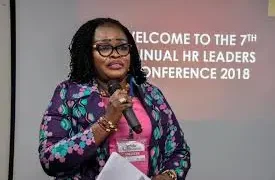

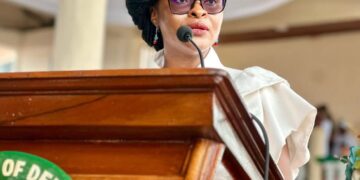



























































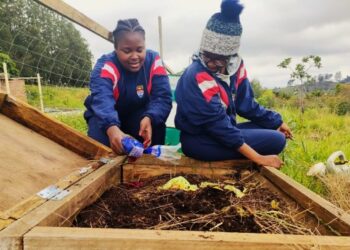
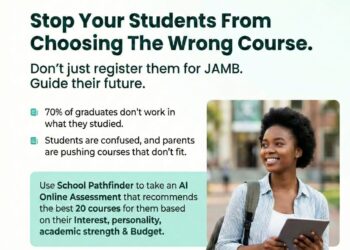
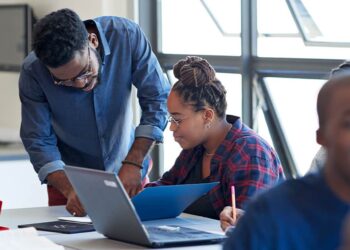
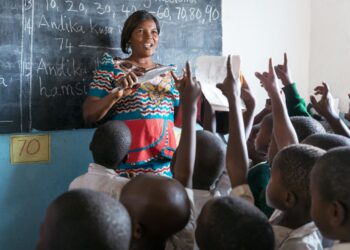

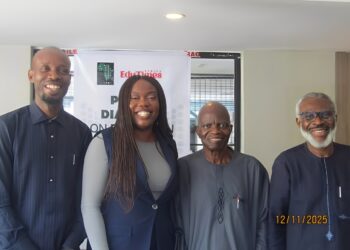










 EduTimes Africa, a product of Education Times Africa, is a magazine publication that aims to lend its support to close the yawning gap in Africa's educational development.
EduTimes Africa, a product of Education Times Africa, is a magazine publication that aims to lend its support to close the yawning gap in Africa's educational development.